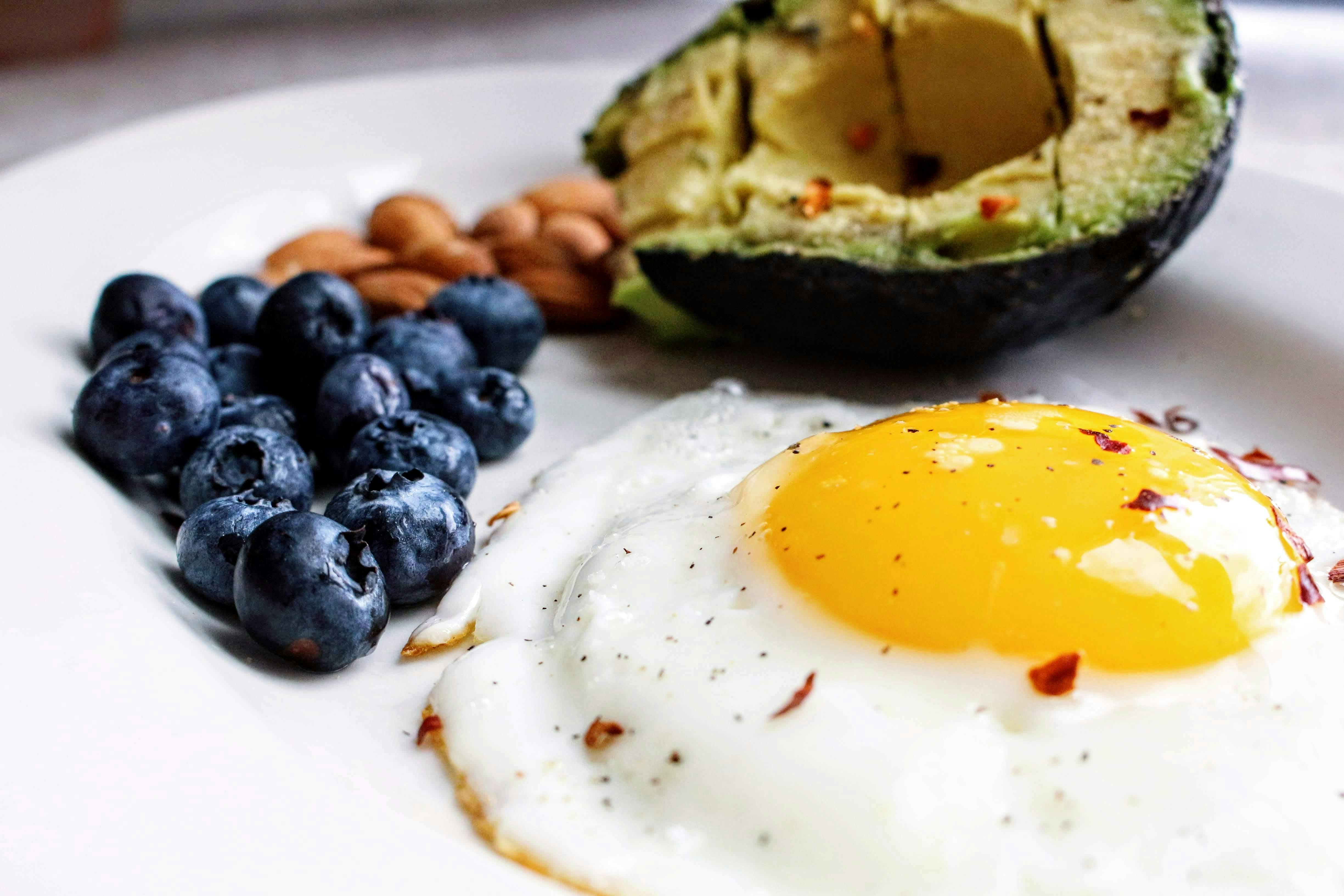Smart Ways to Build Muscle on Keto: Practical Strategies for 2025
Building muscle while adhering to a ketogenic diet may seem challenging, but with the right strategies, it can be achieved. The ketogenic diet focuses on low carbohydrate intake, high fats, and moderate protein, which can be effectively tailored to enhance muscle growth. Despite the misunderstanding that carbs are necessary for muscle gain, numerous individuals have successfully built muscle on a keto diet, underscoring the flexibility of this dietary approach.
This article explores the essential techniques to build muscle on keto, focusing on effective workouts, nutritional strategies, and recovery methods. Understanding keto muscle building principles can empower athletes and fitness enthusiasts to optimize their muscle growth while reaping the benefits of a low-carb lifestyle.
Your roadmap through this article includes an overview of effective workouts for the keto diet, the significance of protein intake, meal planning tips for muscle gain, the importance of supplements, and recovery strategies designed specifically for those following a ketogenic regimen. By the end of this guide, you'll have actionable insights to maximize your muscle-building efforts within the keto framework.
Key takeaways include understanding how to tailor your workouts, optimize your nutrition, and implement recovery practices that complement your keto journey. Let's delve deeper into how to navigate this process.
Effective Workouts to Build Muscle on Keto
To build muscle on the keto diet, it’s essential to engage in effective strength training tailored to your energy levels and nutrition. Resistance training plays a crucial role in stimulating muscle growth while boosting strength.
Strength Training Basics for Keto
Strength training on keto should focus on compound movements such as squats, deadlifts, and bench presses. These exercises engage multiple muscle groups and are effective for building strength. Ensuring proper form and technique is crucial to avoid injury and promote long-term muscle gain. Aim for a workout routine that includes progressive overload, which entails gradually increasing weights or repetitions to continually challenge your muscles.
Incorporating HIIT Workouts
High-intensity interval training (HIIT) complements traditional strength training by improving endurance and fat loss. When performed on a keto diet, HIIT can play a significant role in maintaining lean muscle mass while promoting fat burning. Tailor your HIIT exercises to include bodyweight movements or light weights to keep muscle fatigue at bay. Combining HIIT sessions with strength training can enhance your overall performance and muscle growth.
Tracking Your Progress
Regular assessment of your workouts helps in understanding what strategies are yielding results. Utilize fitness apps or journals to track your workouts, rep count, and weights used. Monitoring your muscle growth and strength achievements not only motivates but also helps adapt your workout plan as necessary. After all, consistency and adaptation are key to muscle growth on a ketogenic diet.
Dealing with Low Energy During Workouts
Initially, some individuals may experience lower energy levels during workouts when transitioning to keto. This is due to the body's adaptation to burning fat for fuel instead of carbohydrates. To combat this, consider timing your workouts and nutrient intake wisely—work out when you are most energized and ensure you're consuming high-protein keto foods post-workout to support muscle recovery. Additionally, focusing on hydration can significantly improve energy levels.
Optimal Workout Frequency
Determining the best frequency for your workouts is critical. Generally, training 3-5 times a week allows for sufficient recovery while still being effective for muscle growth. Listening to your body is essential; adjust your schedule based on recovery needs and progress. Make sure to incorporate rest days to prevent overtraining, which can hinder muscle recovery.
Importance of Protein Intake on Keto
Protein intake on a ketogenic diet is crucial for muscle building and recovery. Understanding how much protein you need for muscle growth can make a significant difference in your progress.
Determining Protein Needs for Muscle Growth
Calculating your protein intake should be based on your weight, activity level, and fitness goals. The general recommendation for muscle gain is between 1.2 to 2.2 grams of protein per kilogram of body weight. Focusing on high-protein keto foods like eggs, lean meats, and dairy can help achieve these goals. However, be sure to track your protein consumption to balance with your total caloric intake and macro percentages.
High-Protein Keto Foods
To support muscle growth on a keto diet, prioritize high-protein foods that are also low in carbohydrates. Foods such as chicken, turkey, fish, and Greek yogurt are great options. Supplemental sources like keto-friendly protein shakes can also aid in reaching your protein targets. When selecting protein sources, aim for quality and ensure you are consuming adequate amounts of essential amino acids that promote muscle protein synthesis on keto.
Meal Timing for Optimal Protein Intake
Strategically timing your protein intake can enhance muscle growth. Consider consuming a protein-rich meal or shake within 30 minutes to two hours post-workout. This timing supports muscle recovery and maximizes muscle protein synthesis. Adopting a pattern of regular protein consumption throughout the day can also be beneficial, ensuring your muscles have a constant supply of nutrients necessary for growth.
Supplements for Building Muscle on Keto
While it’s possible to get sufficient protein from food alone, certain supplements may aid in muscle building on keto. Consider BCAAs (branched-chain amino acids) for muscle recovery, creatine for enhanced performance, and electrolytes to stay hydrated. Always assess your personal needs and consult with a healthcare professional before introducing new supplements.
Common Mistakes in Protein Intake
A common mistake is not consuming enough protein or relying solely on protein shakes without incorporating whole foods into your diet. It’s essential to understand that while shakes are convenient, they shouldn’t replace nutrient-rich meals. Balance is key in achieving optimal muscle growth on the keto diet.
Keto Meal Plan for Muscle Gain
Creating a tailored meal plan that focuses on muscle gain while adhering to keto principles can set you on the path to success. A well-structured meal plan will ensure you maximize your nutrient intake for muscle growth.
Building Your Keto Meal Plan
A balanced keto meal plan for muscle gain should include ample high-quality protein, healthy fats, and low-carb vegetables. Consider meals that incorporate various food types: grilled chicken with avocado and spinach, a stir-fry with fatty salmon, or an omelet with cheese and herbs. Aim to include a variety of foods to meet both nutritional needs and taste preferences.
Pre- and Post-Workout Meals
Nutrient timing is critical on keto for muscle building. Your pre-workout meal should consist of healthy fats and proteins to provide fuel for your workout. Meanwhile, post-workout meals rich in protein and healthy fats can expedite recovery. Consider options like hard-boiled eggs with olive oil or Greek yogurt with nuts and seeds. Understanding how to appropriately time your meals can help in maximizing muscle gains.
Hydration and Nutrition
Hydration plays a crucial role in muscle recovery and performance. Ensure you are keeping hydrated, especially as a ketogenic diet may have diuretic effects. Drinking adequate water alongside electrolytes can support muscle function and recovery. Moreover, adding fiber-rich foods on keto can assist in digestion and overall nutrient absorption, which is vital for muscle building.
Meal Prepping for Success
Meal prep can simplify your keto journey, ensuring you have ready-to-eat options that adhere to your muscle-building goals. Preparing meals in advance can help manage macros efficiently and prevent making poor last-minute decisions. Consider batch cooking proteins and healthy fats for quick assembly during the week, helping to keep you on track with your dietary objectives.
Special Considerations for Athletes
Athletes following a ketogenic diet may need to tailor their meal plans further by considering the intensity of their training. Higher energy demands may require boosting calorie intake, focusing on maintaining carbohydrates during the adaptation phase, or utilizing carb cycling strategies. Nutrition should be personalized based on training cycles and periods of recovery to optimize performance and muscle gains.
Muscle Recovery on Keto
Muscle recovery is just as important as the workouts themselves, especially on a ketogenic diet where the body relies on different energy sources. Understanding recovery strategies will ensure sustainable muscle growth.
The Importance of Sleep for Recovery
Sleep plays a vital role in muscle recovery and overall well-being. Aim for 7-9 hours of quality sleep nightly to promote muscle repair and growth. Poor sleep can impede muscle recovery and negatively affect performance by disrupting hormone levels associated with growth, such as testosterone and human growth hormone.
Active Recovery Techniques
Incorporating active recovery days with low-intensity exercises can enhance blood flow and promote nutrient delivery to muscles. Consider activities like walking, light cycling, or yoga to facilitate recovery without imposing too much stress on the body. These techniques can help alleviate muscle soreness and improve flexibility, contributing.
Nutrition’s Role in Recovery
Following a workout, prioritize foods that aid muscle recovery, such as high-protein options combined with healthy fats. Consider meals rich in omega-3 fatty acids, like fatty fish, or utilize protein-rich sources alongside leafy greens for fiber support. Tracking carbs may not be essential post-workout, but lean towards nutritious options that foster recovery and muscle growth.
Supplements for Recovery
Implementing recovery supplements, such as magnesium and omega-3s, can support muscle recovery on a keto diet. Additionally, branched-chain amino acids (BCAAs) are beneficial in minimizing muscle breakdown and supporting repair post-exercise. Explore various options to identify what works best for your body.
Consistency and Patience in Recovery
Finally, it’s crucial to maintain consistency and patience during your recovery journey. Muscle gain doesn’t happen overnight, and giving your body time to recover and adapt is essential for long-term success. Listen to your body, and make adjustments as needed to support optimal muscle growth.

Optimizing Muscle on Keto with Supplements
Using supplements strategically can enhance your ability to build muscle on a ketogenic diet. Understanding their roles can guide you in selecting the right products to achieve your fitness goals.
Essential Supplements for Muscle Building
Key supplements for building muscle on keto include protein powders, creatine, and BCAAs. Protein powders can help reach your daily protein goals without excess carbs, while creatine enhances strength and performance during workouts. BCAAs help offset muscle breakdown during exercise, ensuring that your muscle protein synthesis is maximized.
Electrolytes and Keto Adaptation
As your body transitions to utilizing fats for energy, maintaining electrolyte balance becomes vital to prevent symptoms of the “keto flu.” Consider supplements containing sodium, potassium, and magnesium. Ensuring that your electrolytes are optimized can greatly improve workouts, leading to better muscle performance and recovery.
Research-Backed Supplements
Exploring peer-reviewed studies on sports nutrition can aid in making informed decisions regarding supplement use. Understand not only what supplements are available but which have been shown to effectively enhance muscle growth and improve performance, particularly in a ketogenic context. Keep an eye on new research and adapt your supplement choices accordingly.
Hacks for Meal Timing with Supplements
Leveraging the timing of your supplement intake around your workouts can help amplify their effectiveness. Consuming BCAAs or protein powders post-workout can provide your muscles with immediate nutrients, fostering recovery. Ensure you’re compliant with any nutritional guidelines to maximize nutrient absorption and benefits.
Finding Your Ideal Supplement Stack
Every individual’s needs vary based on their goals, body composition, and lifestyle. Experimenting with different supplements may be necessary to find what best supports your muscle-building endeavors on keto. Recording your progress will create a clearer picture of what works effectively within your regimen.
Muscle Building Recipes on Keto
Incorporating delicious and nutritious recipes can spark enthusiasm in your muscle-building journey on a keto diet. Diverse meals will keep you engaged and consistent in your approach.
Protein-Empowered Breakfast Ideas
Start the day with a protein-packed breakfast! Consider keto-friendly options like scrambled eggs with spinach and feta or avocado baked eggs for healthy fats and proper nutrition. Adding side dishes like turkey sausage can further boost your protein intake for the day.
Wholesome Lunch Recipes for Muscle Gain
For lunch, try a chicken salad with mixed greens, nuts, and a high-fat dressing that’s low in carbs. Alternatively, consider zucchini noodles topped with ground beef and cheese to enhance flavor while staying low carb. Exploring different seasonings can elevate the taste of meals without losing nutritional value.
Dinner Solutions Rich in Nutrients
End the day with nutritious dinners that support muscle growth, like grilled salmon with asparagus drizzled in olive oil or a meat and vegetable stir-fry. Using herbs and spices can create satisfying dishes that align with your muscle-building goals while keeping the keto framework at the forefront.
Snacks That Fuel Your Day
Snacking is also integral to meeting your protein needs throughout the day. Opt for snacks such as cheese sticks, nuts, or keto protein bars that provide energy without compromising your carbohydrate limits. Maintaining variety ensures you remain satisfied without veering off course.
Simple Keto-Friendly Smoothies for Recovery
Incorporate keto-friendly smoothies packed with protein rich ingredients for recovery. Consider blending unsweetened almond milk with spinach, protein powder, and berries for a refreshing post-workout option. These smoothies are not only nutritious but can also be customized to fit personal preferences and macro requirements.

Conclusion: Achieving Muscle Growth on Keto
In conclusion, building muscle on a ketogenic diet is entirely feasible with the right strategies. By focusing on effective workouts, optimizing protein intake, creating meal plans that suit both your fitness goals and keto principles, and applying appropriate supplements, you can achieve your muscle-building aspirations.
Remember, recovery is as critical as the workout itself. Prioritize hydration, sleep, and active recovery to support your muscles. Embrace the culinary creativity of keto recipes to keep your regimen exciting and flavorful. Each of these strategies will contribute to optimizing muscle growth while enjoying the benefits of a ketogenic diet.
With determination and thoughtful planning, your journey of muscle building on keto can lead to successful outcomes, providing you with not just the physique you desire but also the health benefits associated with ketosis.
```